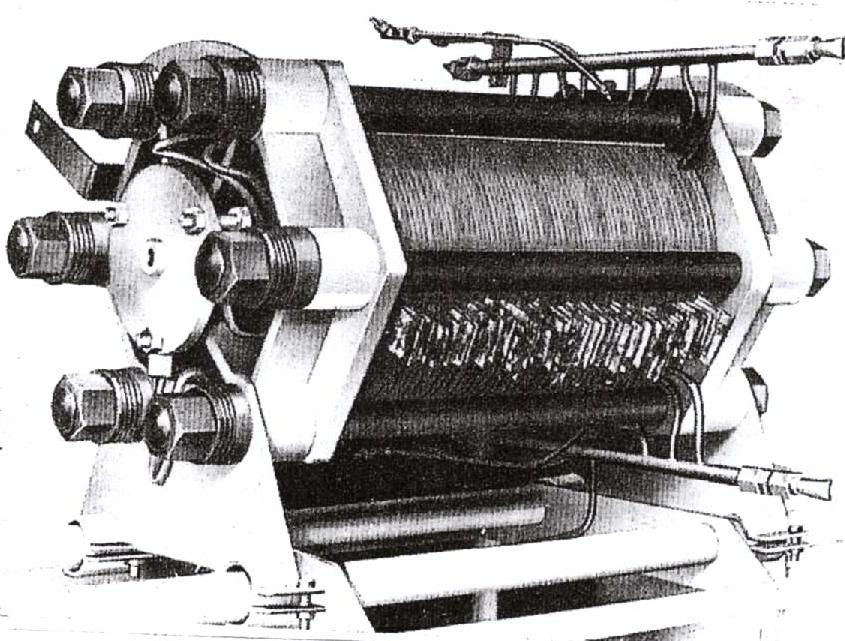What Is Hydrogenation What Is Its Industrial Application Brainly / Catalysts | Free Full-Text | A Review of the Enhancement ... - What are the different types of industrial hydrogenation and what are their.
What Is Hydrogenation What Is Its Industrial Application Brainly / Catalysts | Free Full-Text | A Review of the Enhancement ... - What are the different types of industrial hydrogenation and what are their.. On the other hand compound with all single bond is known as saturated. Hydrogenation is the process of the addition of hydrogen to an unsaturated organic compound (compounds containing double or now, we will discuss its applications. In petrochemical industry, hydrogenation is used to convert alkenes into alkanes. Its industrial application is rancid oils. Hydrogenation is not thermodynamically favorable at ordinary temperatures, so a catalyst is needed. Caesium (also called cesium) is used in photoelectric cells, as a catalyst for hydrogenation of some organic compounds, in medical applications, and in industrial research. Hydrogenation is the process of the addition of hydrogen to an unsaturated organic compound (compounds containing double or now, we will discuss its applications. Hydrogenation is nothing but an addition of hydrogen to an unsaturated hydrocarbon to make it a saturated hydrocarbon on the presence of a catalyst. Hydrogenation is not thermodynamically favorable at ordinary temperatures, so a catalyst is needed. Electrometallurgy is longstanding and unquestionable as an application of electricity in industry. Used mainly for the unsaturated compound like c=c, you can use 5%pd/c or 10%pd/c at. Hydrogenation is a chemical reaction that adds hydrogen to a molecule. Vegetable oil has long unsaturated carbon chains that are converted into saturated fatty acids, i.e., vegetable ghee. This reaction is generally used in vegetable industrial application: However, it behaves as an oxidizing agent when reacting with metals. Hydrogenation is an addition reaction. Unsaturated hydrocarbons are added with hydrogen in the presence of palladium and nickel catalysts to give saturated this reaction is applied in the hydrogenation of vegetables oils, which contain long chains of unsaturated carbons. Hydrogen has three known isotopes. Its industrial application is rancid oils. In petrochemical industry, hydrogenation is used to convert alkenes into alkanes (paraffins) and cycloalkanes. What is the effect of sodium borohydride on gold nanoparticles supported catalyst being used for hydrogenation reaction? Hydrogenation is used in many industrial applications. 1.this text is about electricity. This reaction is generally used in vegetable oils hydrogenation. When ethene is heated with h2 and the catalyst nickel it is reduced to ethane. Nickel catalyst is used in commercial hydrogenation of edible oils. Its industrial application is rancid oils. Haber proccess is an example. The hydrogenation reaction is acquired to achieve a variety of requirements. Examples of hydrogenated products include. Applications of microprocessors in industry. Usually this catalyst is a metal. What mass of cah2 is necessary to react with water to provide enough hydrogen gas to fill a balloon. Hydrogenation is used in many industrial applications. Its industrial application is rancid oils. Used mainly for the unsaturated compound like c=c, you can use 5%pd/c or 10%pd/c at. When ethene is heated with h2 and the catalyst nickel it is reduced to ethane. Unsaturated hydrocarbons are added with hydrogen in the presence of palladium and nickel catalysts to give saturated this reaction is applied in the hydrogenation of vegetables oils, which contain long chains of unsaturated carbons. Hydrogenation is the chemical reaction between hydrogen and other compounds in the presence of catalyst. Hydrogenation is nothing but an addition of hydrogen to an unsaturated hydrocarbon to make it a saturated hydrocarbon on the presence of a catalyst. Asymmetric hydrogenation can basically be classified into two categories, homogeneous and heterogeneous hydrogenation. This has drastically reduced the application of partial hydrogenation as a method of producing solid fats. Hydrogenation is used for preparing vegetable ghee (vanaspati) from vegetable oils, which have long unsaturated carbon chains. The hydrogenation reaction is acquired to achieve a variety of requirements. This reaction is generally used in vegetable industrial application: Hydrogenation is an addition reaction. Palladium is an especially selective metal for several hydrogenation reactions; Elementary hydrogen finds its principal industrial application in the manufacture of ammonia (a compound of hydrogen and nitrogen , nh 3 ) and in the hydrogenation of carbon monoxide and organic compounds. The brainly community is constantly buzzing with the excitement of endless collaboration, proving that learning is more fun — and more effective — when we put our heads together. Hydrogenation is also used to prepare vegetable ghee from vegetable oils. The hydrogenation reaction is acquired to achieve a variety of requirements. Gas is followed by coal, due to its dominant role in china, and a small fraction is produced from from the use of oil and electricity. Today, much of the refining and chemicals production that uses hydrogen based on fossil. Nickel catalyst is used in commercial hydrogenation of edible oils. Vegetable oil have long unsaturated carbon chains, which are converted into vegetable ghee i.e., saturated fatty acids. Hydrogenation is used mainly to reduce sturated hydrocarbonds. 1.this text is about electricity. What is the effect of sodium borohydride on gold nanoparticles supported catalyst being used for hydrogenation reaction? Answering questions also helps you learn!
[question text=what is the author's main purpose in the passage?

Hydrogenation is used in many industrial applications.

What is hydrogenationwhat is its industrial application.




0 komentar